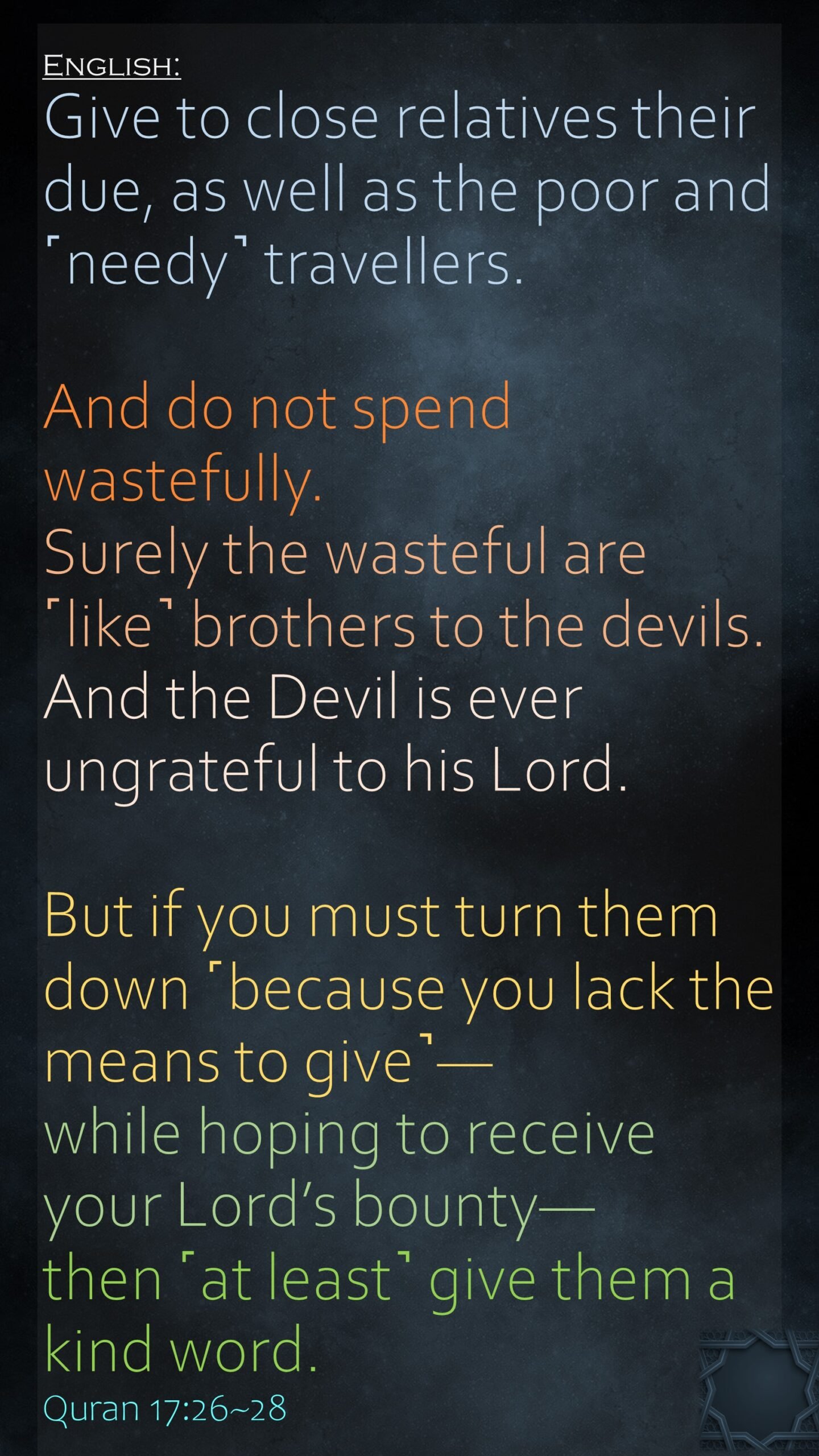Skip to Content
Tag Archives: poor
- Home -
- Posts tagged "poor"
( Page2 )
1
Jul, 2023
Islam, Quran
Abraham, Allah, Ancient House, animal, appoint, assign, associate, ayat, benefits, best, bow, call, camel, circle, distant, eat, feed, foot, fulfil, groom, honour, house, Ibrahim, inspirations, islam, islamic, Kaaba, meat, name, no, oath, ownself, people;pilgrimage, poor, prayer, pronounce, prostrate, purify, quran, ritual, Sacrifice, sight, store, Surah, vow
31
May, 2023
Islam, Quran
Allah, ayat, Bounty, brother, chapter 17, daily, devil, inspirations, islam, islamic, Kind, Lord, means, needy, poor, quran, relatives, spend, Surah, travellers, ungrateful, verse 26 27 28, wasteful, word
15
Feb, 2023
Islam, Quran
Allah, ayat, cause, Chapter 2, charity, daily, doer, good, help, inspirations, islam, islamic, poor, quran, spend, Surah, way, withholding
6
Oct, 2022
Uncategorized
alm, Almighty, ayat, believers, Chapter 9, charity, contribute, critisize, daily, evil, inspirations, islam, islamic, less, more, painful, poor, poverty, promise, quran, ridicule, sadaqat, suffering, Surah, verse 79, voluntarily, Zakat
17
Jun, 2022
Hadees, Islam
Allah, believer, cause, character, daily, day, fast, inspirations, islam, islamic, mujahid, night, poor, pray, reward, warrior, widow
5
Jun, 2022
Hadees, Islam
6006, bukhari, cause, daily, day, hadith, inspirations, islam, islamic, night, person, poor, Sahih, warrior, widow
2
May, 2022
Islam, Quran
215, Allah, ayat, ayat 215, Chapter 2, daily, donate, good, Heaven, inspirations, islam, islamic, knows, needy, orphans, parents, PBUH, poor, Prophet, quran, relatives, reward, Surah, surah 2, travellers, verse 215
29
Apr, 2022
Islam, Quran
Allah, alms, Angels, ayat, battle, beggars, believe, books, captives, Chapter 2, daily, day of judgement, east, Faith, freeing, inspirations, islam, islamic, mindful, orphans, patient, pledge, poor, prayer, prophets, quran, relatives, righteousness, suffer, Surah, travelers, true, Verse 177, wealth, west
21
Jan, 2022
Islam, Quran
al Fajr, ayat, Chapter 89, daily, greed, inspirations, islam, islamic, orphan, poor, quran, Surah, verse 15, verse 16, verse 17, Verse 18, verse 19, verse 20, wealth
24
Dec, 2021
Islam, Quran
alms, ayat, Chapter 51, daily, deeds, good, inspirations, islam, islamic, poor, prayer, quran, righteous, sleep, Surah, Tahajjud, verse 15, verse 16, verse 17, Verse 18, verse 19









